Brontë House School Foundation Stage Handbook 2022/2023
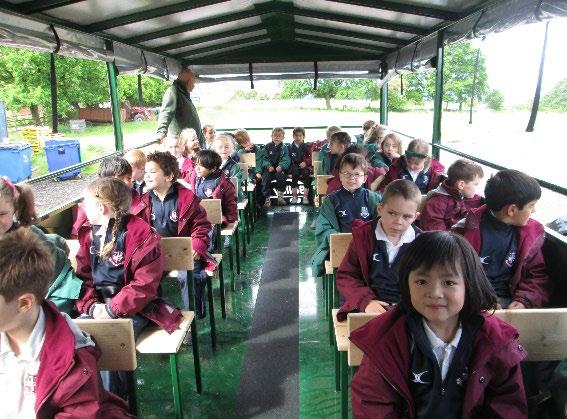
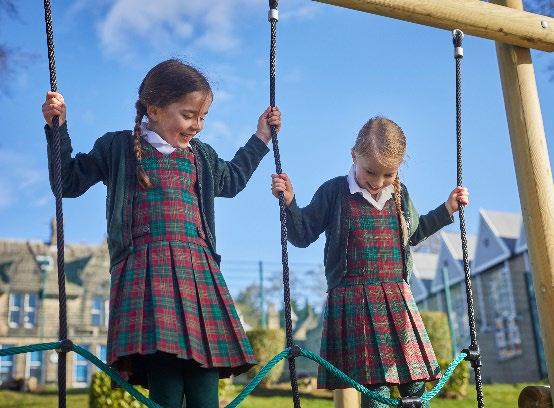

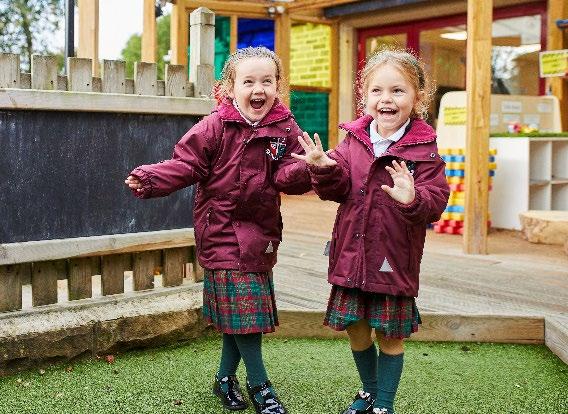

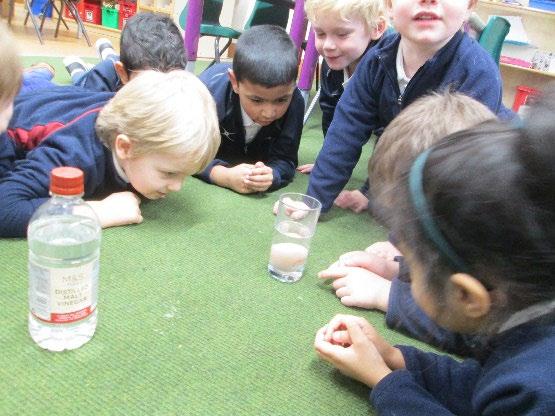

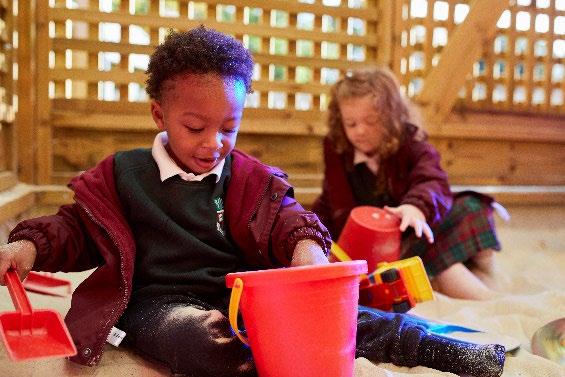

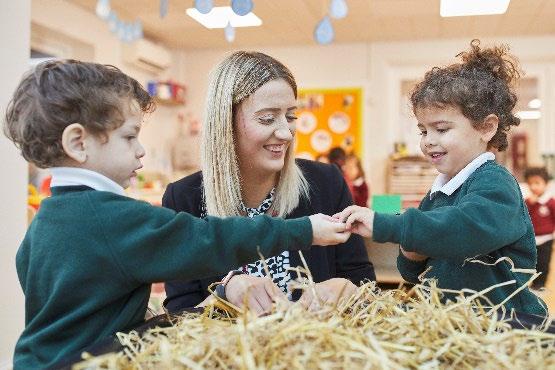

woodhousegrove.co.uk
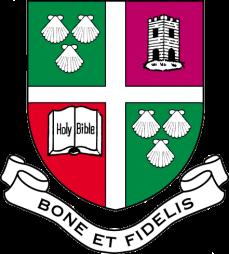
Contents
Page
Staff 3 School hours & The School Year 4 Absences 5
Medical appointments and medicines 5
Two Year Check 6
Lunch/tea/snacks 6 Ashdown/Brontë Association 7 Behaviour & Rewards 7
Summary of Key Stages – Guide to Foundation Stage Framework 8
Home-school links 10 Profiles - Tapestry 11 Term dates and provision 11 Special Needs & Disabilities 12
Further Information 12 After School Clubs 13 Care & Welfare 13 Key Person 13 Child Protection & Safeguarding 14 Intimate Care 14 School Uniform 14 F.E.E.E 15
Trips and Visits 15
Appendix 16
School Information 16
Daily Overview & Timings, including Timetable for Reception 17
Arrangements for Arrival & Departure of Children 18
Procedure in case of severe weather 18
Clothing List 19
Weekly collection arrangements 20
Areas of Learning & Development 21
Advice to parents on head injuries 23
Minimum Periods of Exclusion/Illness 24
Accident/Medical Procedures at Ashdown Lodge 25
Procedure for Absences 26
Code for Responsible Computer and Internet Use 27
Missing Child Policy and Procedure When a Child is Not Collected on Time 28
2
THE STAFF
Head of School: Mrs Sarah Chatterton
Head of Early Years - Mrs Hannah Foster BA QTS with Early Years foster.ha@brontehouse.co.uk EYFS Lead & Reception B Teacher
Pre-Nursery Nursery Reception B Reception H
Miss Hargreaves - Nursery Manager
Mrs Potter Bed Hons Mrs Hallam BA Hons QTS hargreaves.s@brontehouse.co.uk potter.r@brontehouse.co.uk hallam.r@brontehouse.co.uk
NVQ Level 3 in Childcare & Young People Designated Safeguarding Lead Holiday Club Lead
Mrs Emmett Level 3 Diploma Miss Lee MA Family Support Mrs Foster Acting Pre-Nursery Room Leader Nursery Room Leader (see above)
Additional team members:
Pre-Nursery & Nursery
Miss Sait CACHE in Childcare & Education – Level 3
Miss Delaney NVQ Level 3 in Childcare Ed p/t
Mrs Walker NNEB Level 3
Miss Tahir NVQ Level 3
Mrs Storton NVQ Level 3
Miss Kausar BTEC Childcare Level 3
Mrs Dooling NVQ Level 3 in Childcare Ed
Mrs Pearson CACHE in Childcare & Education Level 3 Miss Cawthaw Apprentice
Reception B
Mrs Moody NNEB NVQ 4 in CCLD Reception H
Mrs Ham BA Hons QTS Bed Hons p/t
Mrs Cowburn BTEC National Diploma in Childhood Studies p/t indicates part time roll
Sport Department:
Mr Toby Waterhouse Sports Coach
Mrs Cath Couzens Sports Teacher
Mrs Olivia Aspley Sports Teacher
All our staff have regular training in aspects connected to the curriculum, care, wellbeing and safeguarding of the children. All staff working with the children hold a current paediatric first aid certificate.
3
SCHOOL HOURS
Ashdown Lodge opens its doors at 7.30am for before school care and breakfast. Children requiring breakfast should arrive before 8am. Curriculum activities in the classroom begin at 9.00 am and continue until 3.30 pm. Children in Reception are expected to arrive at school by 9.00 am at the latest Pre-Nursery & Nursery remain in Ashdown Lodge for lunch and this is served as a family style lunch. Lunch for Reception is served in the dining room at Bronte House. The staff who work with the children in the classrooms eat alongside them and monitor and help them across lunch time. Healthy snacks and milk/water are provided in the mornings and afternoons. We endeavour to make sure children have access to the recommended amounts of dairy, fruit and vegetables each day.
After school care is available up to 6pm. Between 3.30pm – 4.30pm we offer ‘after school activities’ for Nursery and Reception children. Some of the activities are run by specialist individuals and are available to book half termly, on a first come, first served basis. There is a small additional charge for these activities. Other activities are provided by the Ashdown staff and include such things as construction club, craft and sewing club. All children are welcome to attend these clubs and there is no additional charge for these. From 4.30 pm children remaining in after school care will be provided with a light tea, served in Ashdown Lodge.
All parents and carers collecting children at any time must report to a member of staff at Ashdown Lodge upon arrival. Parents can collect any time from 3.30 pm up until 6.00 pm. A security device is attached to the main door and the bell should be rung to gain admission. Parents should let staff know of any changes to the ‘usual’ person collecting their child. Filling in a ‘collection/tea’ form at the beginning of each week helps us with this process too (see Appendix). Please ensure you always lock the gate behind you.
In the event of bad weather parents may wish to collect their children earlier. NB: School remains open throughout bad weather (e.g snow); however, we leave it up to parents to decide whether it is safe to travel to school and early collection is permissible. EMERGENCY CONTACT: School Office – 0113 250 2811
SCHOOL YEAR
Pre-Nursery & Nursery can attend their chosen weekly sessions in 2 different ways; term time or 51 week places. Although the number of children decreases in the holiday periods, the provision and standards remain the same. Term time children can opt in to holiday periods as well. Please note that there are two training days when we are closed, we close between Christmas and New Year and on the last day of the school academic year (in July) we close at 12 noon.
Reception are full time and have the option of attending the ‘holiday club’ provision in the holidays. This is run by the school and can be booked on an ad-hoc basis; it is part of the whole school holiday club provision. Reception children mix with older children and take part in a large range of play based, fun experiences.
4
WHAT TO DO IF YOUR CHILD IS ABSENT
If your child is absent for any reason, please telephone (0113 2502811) or e-mail the school at absence@brontehouse.co.uk on the first day of any absence, and every day thereafter. Please see the ‘Periods of Exclusion’ in the Appendix and Procedures for Absences. You do not need to talk to the child’s teacher, leaving a message with the office staff is sufficient, the office is open from 8.00 am daily. If a message has not been received for any children absent the school office will telephone home, in line with our Safeguarding Policy. Advance information is required if you are planning to take a holiday in term time. Permission will be required from the Head if your child is of legal school age i.e in Reception.
SHARING INFORMATION AND OTHER SERVICES AROUND YOUR CHILD
It is necessary for us to build up a clear picture of your child and his/her individual needs, whatever they might be, as soon as your child starts their time with us. To allow us to do this quickly, please bring in any information that you might have from any previous child care providers (if your child has been at a nursery or child minder, they should have info to share with us). If you have any worries or concerns of your own, or from your child's 2 year check with the Health Visitor, please let us know about these too. You should also let us know if your child is working with any other services, such as speech and language or has any medical conditions such as grommets. Please let us have a copy of your child’s Two Year Educational Check which should have been carried out at their previous setting if they have attended one. Please complete the necessary school paperwork as soon as possible when starting with us so we have all the information that we need. Settling visits will also be arranged, this too is a good way to share information.
MEDICAL APPOINTMENTS & MEDICATION
If you need to take your child to the Doctor, Dentist, Hospital etc. in school time please collect your child from school (or advise us if your child has an early morning appointment and is going to be late).
Prescribed medicines can be administered at school with written consent. Paracetamol based medicine e.g Calpol can also be given but only with prior written consent. Please hand in all medicines to a member of staff, never leave them in your child’s bag*. Some conditions, however, (e.g. asthma, hay fever) rely on regular medication. This can also be stored in school and we will talk to you about your child’s individual needs. A member of staff will give a child their medicine and a written record will be placed in their book bag for your reference. All medication should be clearly marked with the child's name and instructions for use. Please notify us of any changes to your child’s health, long or short term. We will do our best to remember to administer medicines, such as antibiotics, but we cannot guarantee this. We cannot give medicines containing aspirin unless they have been prescribed by a doctor. We do not give cough medicines. We will apply suncream to your child should the need arise (with prior consent from yourself) or where possible we ask that you apply the ‘whole day’ variety at home before they come to school. We will apply plasters but only if you have given permission on the medical sheet that you will fill in when your child starts school. Please check that we have remembered to put the medicine back in your child’s bag at the end of each day.
*prescription medicines should be left in the named original box/packaging. School will provide Calpol to limit the transportation of medicines around school.
5
AT TWO YEARS
The guidance dictates that we assess your child as near to being two years old as possible. This assessment is designed to work hand in hand with any health checks that your child has had, details of which are usually found in the red medical book that you received when your child was born. If the two year-old development check has already been carried out by a previous nursery it would be helpful for us to see a copy (the previous setting will not automatically send a copy to us). If a check has not already been undertaken we will complete one within your child’s first 6-8 weeks with us. We will keep you informed and ask for your input at each stage of this assessment. You will receive a copy of the final assessment and we will be able to discuss it further. We will not share this information with another setting without your permission. This developmental check is completed to ensure that any gaps in development are identified early so measures can be put in place to fill these gaps should there be a need and to give you an idea of your child’s next steps in learning.
You may find it useful or beneficial to share the contents of this check with other professionals such as health visitors (who can use it as part of their health and development review)
LUNCH/TEA/SNACKS
Lunch is provided each day in Brontë House (Pre-Nursery & Nursery remain in Ashdown Lodge) and any special dietary requirements will be catered for, wherever possible Please do not send in food from home. It is essential that these are details on your child’s medical information form and that a care plan is completed and held in school for children with allergies. For those children with more complex dietary needs, a meeting may be necessary to discuss this further with the Catering Manager and Nursery Manager.
Our menu is on a three-week cycle and is published on the website. A sandwich tea is available at 4.30pm and is served in Ashdown Lodge, supervised by Ashdown staff. Allergen advice about snacks served is shown the Appendix and these include things such as fruits, breadsticks and crackers, milk and water (no juice). These are served twice a day and snack times are promoted as social times where we encourage good table manners and small group discussions, especially about which foods are healthy and good for us. Please keep us informed of any allergies that your child may have or may develop. Parents are requested to complete a ‘collection form’ and give it to the class teacher on their child’s first day of the week indicating which days your child requires tea. Water is always available throughout the day, but we encourage children to bring in their own named water bottles as well. These are sent home every night for washing.
All parents will have the opportunity to discuss individual child’s eating habits during their settling in visit.
We are a nut aware school – no nuts are served in any dishes or snacks
We no longer allow parents to send in treats for birthdays due to allergy risks.
6
PROGRESS CHECK
ASHDOWN/BRONTË ASSOCIATION (ABA)
The Ashdown Bronte Association is the parent teacher association for Bronte House school. All parents and/or Guardians of pupils attending the School and all staff shall be eligible for membership of the Association together with any other person with an interest in the School.
The objective of the Association is to support the school in the enrichment of the school life and support the well-being of the of the pupils who attend it.
The ABA :
· works to develop the relationships between staff, parents, pupils and others associated with the school
· we work to support and promote the school community
· undertakes fundraising activities such as organising discos, fairs and raffles to provide extra facilities for school lead education and welfare projects.
For further details please email chairaba@gmail.com
BEHAVIOUR & REWARDS
Supporting children in the development of their social behaviour is an important part of our curriculum. We model considerate, friendly and positive behaviour and expect pupils to behave sensibly, and with consideration for others, at all times. Staff make every effort to solve problems with pupils in a sensitive and caring way. We encourage positive behaviour by rewarding the children with stickers and praise.
Behaviour is linked to self-regulation which is a big part of our curriculum. In school, we do lots of group work and play games specifically designed to help children understand their emotions and master self control.
We depend upon your input and support in all aspects of behaviour. The school behaviour policy is available on our website or on request from the school office.
7
SUMMARY OF KEY STAGES
The period of a child’s life from birth to 5 years is known as the Early Years Foundation Stage (EYFS), housed in Ashdown Lodge.
Key Stage One refers to Year 1 and Year 2 children (aged 5-7 years).
Key stage Two refers to Years 3 to 6 (aged 7-11 years).
GUIDE TO THE FOUNDATION STAGE FRAMEWORK
This is a very important stage in your child’s development as it helps your child get ready for school as well as preparing them for their future learning and successes. From when your child is born up until the age of 5, their early years’ experience should be happy, active, exciting, fun and secure; whilst supporting their development, wellbeing and learning needs.
Young children are powerful learners who learn quickly. It is proven that a child’s experiences at this crucial stage has a major impact on their future life chances. They make sense of their environment and their experiences through play. Children are naturally drawn to play and it is recognised as being important for their wellbeing and development. There are many forms of play, all of which help children to learn, become confident learners and develop skills for the future. Some play is child initiated and adults may enhance and support children’s learning, some play is highly structured and adult directed. Both of these offer purposeful experiences for the child. Children should be stretched but not pushed beyond their capabilities, so they can enjoy their learning. Through this they will grow in confidence and will be more likely to reach their full potential. We provide a stimulating environment full of resources to enable children to investigate and explore in a purposeful way.
Parents also play a crucial role in helping their children to learn. We, as school and parents, need to work closely to ensure continuity between experiences at home and those at school. We will occasionally ask you to complete work at home e.g reading books once your child reaches Reception and will try to advise you of next steps in learning through meetings, the e-profile (Tapestry) and notes in their book bag.
8
The EYFS Framework consists of 7 areas of Learning & Development:3 Prime Areas • Personal Social & Emotional Development • Physical Development • Communication & Language 4 Specific Areas • Expressive Art & Design • Literacy • Mathematics • Understanding the World
Plus 3 Characteristics of Effective Learning (How children learn)
• Playing & Exploring in their environment
• Active Learning, Involvement & Concentration
• Critical Thinking & Problem Solving
All children develop at different rates and have different interests. The ten areas listed above all interlink and are taught through a range of stimulating activities. Our staff teach and support your child and will make sure that the activities they plan are suited to your child’s unique needs. The children are encouraged to investigate and explore as well as learn to be respectful and caring towards others. We also take into account the different ways children learn and use a variety of teaching techniques to suit different learning styles.
More information can be found in ‘Areas of Learning & Development’ in the Appendix.
Much thought has been given to making sure that your child is as safe as possible. Within the Early Years is the EYFS statutory guidance that we must follow such as; staff ratios, administering medicines, procedures and risk assessments. There will be various forms that we will ask you to complete about such matters. You should hand a collection time/tea form in to the class teacher every week. (see Appendix)
You will find displays around our school showing in more detail the type of activities that the children participate in. Most of our teaching is based around topics which may change from year to year based on that particular group of children’s interest and/or topical events. Parents will receive a copy of the half termly topic review via your child’s book bag. Detailed planning is a available on request.
Outdoor play is an important part of our curriculum and your child should always come in suitable shoes, coats etc (named). They should bring hats, scarves, gloves, sunhats etc as appropriate. Children may also partake in trips; we will always ask for your written permission for this. All trips are optional. Please ensure your child has a pair of named wellington boots in school at all times for use when it rains.
We are a Methodist school and uphold Christian values. The School Chaplain visits the older children regularly, often telling stories with a moral. We explore and celebrate other cultures and religions as part of our curriculum.
A guide to the curriculum written specifically for parents can be found at “What to Expect, When”, an online publication by 4Children.
9
LINKS & PARENTS AS PARTNERS
Many parents ask us how they can help with their child’s learning. All the fun activities that you do with your child at home are important in supporting their learning and development, and have a long lasting effect on your child’s learning as they progress through school. The development of your child’s language plays an incredibly important part in their development, explaining things to your children, sharing books, singing rhymes all lay down strong foundations for good communication skills.
We believe that contact between home and school is crucial. Staff are readily available on a daily basis to discuss routines, your child or any other matters. Tapestry is the most effective way to share information so please check this daily. Library books, known as ‘contact books’ are available for you to borrow and share with your child. Parents can also maintain contact with staff via the child’s book bag which should be brought to school daily We encourage you also to post in Tapestry about any ‘firsts’ your child has mastered whilst at home.
When your child first starts with us we will ask you to fill in a sheet which tells us about what your child can and cannot yet do. Please return this to school as soon as possible. You should also receive a pack containing other useful information that you might need.
If you feel that your child needs help in any area, please let us know. Formal parent consultations are held regularly in Reception but we do operate an ‘open door’ policy and encourage discussion about your child and any school matters whenever necessary or required.
There is a fortnightly bulletin sent out to your e-mail address. You may also occasionally be contacted via a text message.
During your time with us we will help your child to learn things such as putting their own coat and shoes on. It really helps us and your child if you practice these life skills at home too. It is important that children learn to be as independent as possible and they are more than capable of carrying their own bags, fastening their own coats and walking (not being carried) into school. It can take a little time to master these skills but by encouraging them and giving them time to practise, they will soon learn how to do these things and will be very proud when they can do them alone.
Please notify us immediately of any changes to your address, emergency or mobile telephone numbers or legal changes to parental responsibility. We must also know of any allergies or medical/dietary requirements that your child may have.
It is useful for us to have information from your child’s previous nursery setting (if applicable). Please bring in any information that their nursery passes onto you about your child when they leave. It will help us build an accurate picture of your child much quicker.
10
HOME-SCHOOL
Tapestry is on online application (app) showing your child’s achievements and progress during his/her time with us. It is updated regularly by your child’s ‘key worker’ and is available to you electronically. You are able to look at your child’s profile and to add comments, photos, quotes of your own. The profile includes observations and photos of your child engaged in play and activities from when they arrive at school until they leave at the end of the Reception. The system is called ‘Tapestry’ and you will be sent an e-mail link during your child’s first week with us.
An important part of the EYFS Profile is your knowledge about your child’s learning and development, so do let us know about what your child does with you: such as how confident your child is in writing their name, reading and talking about a favourite book, speaking to people your child is not so familiar with or their understanding of numbers. Also, what interests your child has, do they seem sporty or creative, do they enjoy climbing, swimming, playing with other children etc.
All of the information collected is used to judge how your child is doing in the 7 areas of learning and development and if your child needs any extra support in any area. It also helps us to plan activities that are of interest to your child thus making their experiences more meaningful. We also report on and consider how your child learns; do they test their own ideas, challenge themselves, consider things carefully or just ‘jump in’ etc. At the end of Reception, the final assessments are carried out and reported to you formally via a written report.
HOLIDAY DATES
Term dates are available on our website https://www.woodhousegrove.co.uk/school-info/term-dates/
If you are on a term-time only arrangement holiday care is available throughout the year for all children, other than closing for a period at Christmas, Bank Holidays and occasional staff training days but you will be informed well in advance. You should book your holiday club care and provision shortly before each holiday on the forms provided via the Nursery Manager.
Pre-Nursery & Nursery children are based in Ashdown Lodge during the holiday periods so provision, safety and staffing can be continuous. From Reception upwards holiday care is based at Bronte House, led by a qualified play worker leader. Additional clubs are available to all children over 5 years of age and information will be sent out prior to each holiday period. Children in Pre-Nursery and Nursery will continue to wear their school uniform during the holiday periods. Reception can attend in their own clothes
11 TAPESTRY
DISABILITIES
We operate an inclusive policy where all children are valued, and where possible, their needs are met. Reasonable adjustments may be made to accommodate a child with any specific additional or physical needs. Parents should always inform us if their child has any additional needs, such as wearing glasses or is visiting a speech and language therapist, or if you have any general worries about your child’s development. You should let us know of any other agencies that are involved with your child (such as a paediatrician or occupational therapist) or if your child attends another nursery. In school, we can access help from the Local Authority whilst they are in Nursery to support children with any Special Educational Needs or Disabilities. The designated Special Educational Needs Co-ordinator will work closely with anyone else who is involved with your child to ensure the best outcomes.
WHERE TO GO FOR FURTHER INFORMATION
The safeguarding/Child Protection Policy and School Ethos are available to view on the school website along with many other policies https://www.woodhousegrove.co.uk/school-info/policieshandbooks/. Our Inspection Body is the Independent Schools Inspectorate (ISI) telephone number 020 7600 0100 and our latest full inspection report can be found on our website. All other policies are available on request from the school office (See Appendix) as well as the procedure in case a parent fails to collect a child and Missing Child Policy (See Appendix).
Issued on a fortnightly basis is our bulletin which gives update information and details of events happening both at Ashdown Lodge and Bronte House. This also includes important dates such as Christmas Fayres, Parents Evenings etc. You may receive letters via e-mail or your child’s book bags, please check this regularly so that you don’t miss anything important. Copies of timetables and topics covered will be sent home in your child’s book bag too. Please check Tapestry daily as well.
There is also a new website for parents and practitioners www.foundationyears.org.uk which includes a range of information, resources and contacts. Information on what’s going on in our area can also be found at www.familyinformationservices.org.uk or the DfES website at www.gov.uk Details of our curriculum can be obtained from www.4children.org in the “What to Expect, When” document. Further support for parents with young children can be found at local Children’s Centres. Your child is eligible to start school (Reception) in the September following their 4th birthday. Should you wish to apply for a maintained school place for your child after nursery you can find more information at www.leeds.gov.uk or www.bradford.gov.uk This should be done in the first half term of the year in which they are in Nursery.
12 SPECIAL
NEEDS &
CLUBS
After school clubs are available for most of our children; the clubs on offer vary over the academic year In the Foundation Stage we have a mixture of in-house and outside agency run clubs (extra charges are payable for outside agency run clubs). Details of specific clubs available in 2022-23 will be sent separately when confirmed.
Children will have the chance to ‘sign up’ for these clubs every half term. They usually take place at Brontë House either in the Sports Hall or the dining room. Other daily clubs are available and run by our staff during the after school period here in Ashdown Lodge. These are in house clubs and they are free of charge.
CARE & WELFARE
We have beds available if your child requires a nap. Please bring nappies into school, should your child require them. If your child requires any other special equipment, please discuss this with your child’s ‘key worker’. Comforters such as special toys can be sent into school, but please be aware that these may occasionally be misplaced or lost. You should let us know if your child has any special dietary requirements or special health needs. It also helps us if we know of any food preferences or habits your child may have. We will ask you personally about your child’s particular needs on his/her first day at school or on their settling visit. Children are supervised at all times within the school. The playground is enclosed and has a locked gate as its only point of access. Doors remain locked, please ring the bell for entry. Parents will not be allowed in, only on your child’s settling visit or for prearranged meetings. Please name all clothes and belongings clearly.
KEY PERSON
Your child is assigned a ‘key person’ as soon as they start at Ashdown Lodge. The ‘key person’ will be an effective and reflective practitioner who tunes into your child and their individual needs in order to provide a secure base from which to explore and learn. Speak to your child’s ‘key person’ or teacher as often as you can so you know what your child has been doing at school.
A ‘key person’ is there to: -
• Be responsible for your child’s development & learning and keeping records to share with you
• To recognise (and act upon) individual needs by getting to know you and your child well
• Be a first point of contact for you
• Develop a close emotional relationship and help your child to become settled, happy and feel safe
• Offer reassurance and comfort and to be sensitive to your child’s individual needs
• Notice changes in behaviour and be responsive to this
13
AFTER SCHOOL
Your child’s welfare is our primary concern. We have child protection (safeguarding) procedures in place that require us to report any physical intervention by any adult on any child. We may, on occasion, have to ask you about a ‘mark’ on your child, or about something he/she has said that is unusual. The designated Safeguarding Lead at Ashdown Lodge is Miss Hargreaves and Mrs Foster, Mrs Chatterton at Brontë House. Please talk to them or any member of staff about any matters concerned with this. The safety of your child is paramount to us and we have various security and safety procedures and arrangements in place. These procedures will become apparent from the very beginning of your time with us, from the forms you fill in to the everyday routines that we have in place. Please talk to us if you have any worries or concerns about this matter. Other safeguarding leads in the school are Miss Pearson, Mrs Simpson, Mrs Foster, Miss Broscombe and Mrs Riley.
INTIMATE CARE
Intimate care means any care that involves washing a child or changing clothes/nappies. This type of care is part of our everyday work with children, for instance when we help them change for PE, or deal with an injury that involves taking tights off, or changing a child after a toileting accident. Obviously, this type of care comes with certain responsibilities to yourself and the children themselves. We wish to assure you that any care of this type is carried out in a respectful and sensitive way and not in a way that will cause any distress or embarrassment to your child. It will only be carried out by the Nursery Practitioners that the children know well. As always please contact us with any questions. Your consent will be required on this matter prior to your child starting school. Spare clothes are available in school should your child need them. Please wash and return after use. You will be advised of any accidents your child may have had via a note in your child’s book bag, or verbally. It is a good idea to keep a few spare clothes in your child’s pump bag on their peg in case we need to use them.
SCHOOL UNIFORM
A school uniform should be worn by all children. For specific details on uniform please visit our website page https://www.woodhousegrove.co.uk/bronte-house/useful-information/uniform/
Please provide hats, scarves, gloves and sun hats as required. Please make sure all uniform and items belonging to your child are clearly named. Please bring a pair of wellingtons to school for your child.
All children need a tabard to protect their clothes at dinner time. PE kits are needed in Reception only and are left in school for half term periods before being sent home for washing. Nursery and PreNursery children should have a school pump bag containing a pair of black pumps and some spare clothes (not necessarily uniform)
School uniform is available on-line from https://www.schoolblazer.com/. Sports/PE kit (Reception only) is available https://www.graysteamsports.com/collections/woodhousegrove-school
We have second hand uniform for sale which raises funds for our Parents’ Association; please ask in school for details. See more information and relevant uniform lists in the Appendix.
14 CHILD PROTECTION & SAFEGUARDING
Places in Pre-Nursery and Nursery are fully flexible across the week and the day. It is only when children enter Reception that they are expected to be full time. Government funding is available from the term after your child turns three until the term after they turn five. This may be the universal 15 hours funding or, depending on your circumstances, may be up to a full 30 hours funding that you are entitled to. Parents can access their FEEE at a maximum of two sites in one day. A site refers to the postcode of the setting. It is your decision about how the funding is allocated between the providers.
Please ask in school for more details.
TRIPS & VISITS
Trips and visits are a vital part of our curriculum and are used to allow your child to experience things first hand. They are all none compulsory and a full risk assessment is carried out before every visit. These really enhance your child’s learning as they provide first hand experiences that cannot always be replicated in school. Trips are usually short (morning or afternoon) and local. We use a reputable coach company with coaches fitted with seat belts and we will always send out an e-mail requesting your permission. We may also use our own school mini-buses. Examples of trips are Hesketh Farm Park with Nursery, Eureka! & Tropical World with Reception, in addition to workshops and theatre visits.
Trips are now arranged online via our new Evolve system requesting permission, up to date medical information and online payment. Please ask in school if you require any further clarification.
15 F.E.E.E
APPENDIX
School Information
In order to ensure that we continue to comply with regulatory obligations applicable to all independent schools please find below a summary of all the key details that are available for parents and prospective parents upon request or on our website in the downloads section.
Name of school: Brontё House School
Address: Apperley Bridge, Bradford. BD10 0PQ Telephone number: 0113 250 2811 Email: enquiries@brontëhouse.co.uk
Head: Mrs Sarah Chatterton
Chairman of Governors: Mr Alan Wintersgill
Chairman’s address for correspondence: Chairman of Governors, Woodhouse Grove School, Apperley Bridge, Bradford. BD10 0NR
All correspondence will be forwarded as it arrives.
Policies and Procedures
The School has published some of its policies and procedures on the School website www.woodhousegrove.co.uk. Others appear in the joining booklet or are available on request. The policies on the web-site can be accessed from the home page by clicking on the “downloads” tab. Academic Performance Website download Admissions Policy Available on request from school office
Anti-bullying Policy Available on request from school office
Behaviour Policy Available on request from school office
Child Protection Policy Website download Complaints Procedure Website download
Curriculum Policy and EYFS Curriculum Policy
Available on request from school office
Educational Visits Policy Available on request from school office
First Aid Policy Available on request from school office
Health and Safety Policy Available on request from school office
Inspection report for the School Website download Learning Support Policy (incl. English as an Additional Language) Available on request from school office
Safer Recruitment Policy Available on request from school office
16
Special
Educational Needs and Disability (SEND) Policy and
Accessibility Plan
Staff Code of Conduct
Available on request from school office
Available on request from school office
Please ask the school office if you would like paper copies of any of the information mentioned above as a website download
The ‘Statement of the School’s Ethos’ can be found on the school website and was included with your Terms & Conditions.
DAILY OVERVIEW & TIMINGS IN THE FOUNDATION STAGE
Time
7.30 – 8am
7.30 – 9am Nursery & Reception in Nursery
Overview
Must arrive during this time if breakfast required
Morning care in Pre-Nursery for 2-3 years 9.00am
Morning session begins, all children should be in school by this time 11.30pm Lunch followed by playtime (Pre-Nursery & Nursery) 12-1pm Reception Lunch time 12.50pm Afternoon session begins (Pre-Nursery & Nursery) 3.30-4pm After school clubs begin 4.30pm Tea is served in Ashdown Lodge
After school care is 3.30-6pm.
TIMETABLE IN RECEPTION
Reception is a little more structured than Nursery with specific times for Literacy, Maths, Foundation subjects and outside time. You will receive a timetable when your child starts in their Reception class and this will highlight PE and music times with specialist teachers as well as other key times in the week. In the afternoons the Reception classes are mixed and the children are able to work in their opposite class with the other Reception teacher. This increases their experiences and allows them to mix with the other class and have access to different resources.
17
Children should not arrive before 7.30am. Please park in the lower car park, not the staff car park near to the school. Please make sure children are accompanied on the path to Ashdown. Arrival before 9am is deemed as being before school care.
You can collect your child from the Ashdown Lodge main door and escort him/her to the car park. The children are told to hold an adult’s hand once they have reached the barrier. On arrival you will always be met by a member of staff who will sign your child out. Please do not send a sibling under the age of 14 to collect your child. If anyone different comes to collect your child without prior notification, we will phone you before letting your child leave.
Please make sure children are supervised around the school site. Ashdown children are not allowed on the climbing equipment in Bronte’s playground as it’s too big and unsuitable for them. If, for reasons of disability, any parent is unable to use the bottom car park please contact the school office.
There may be some changes to these routines on certain nights such as when Parent Consultations are being held in the classrooms or sports hall.
Please do not park outside the school or in the staff car park without prior permission. This is to ensure the safety of the children who will be present in these areas during collection and drop-off times.
PROCEDURE IN THE CASE OF SEVERE WEATHER
Ashdown Lodge does not have the facilities to accommodate children overnight as the school does not have resident staff. Brontë House is unable to cope with an influx of our pupils.
In view of this, please observe the following procedures:
1. School will remain open unless the premises are unsuitable or unsafe.
2. If there is a severe forecast or snowfall during the school day, parents may be asked to set off earlier than normal in order that they can collect their children by the end of the school day.
3. If staff are unable to get to work due to the weather you may be asked to wait with your child should we exceed the child:adult ratio, until such time as we have enough staff.
4. Whatever the time, please collect your child as we do not have sleeping facilities.
We ask parents to keep an eye on the school social media platforms and their email/text communications form the school in the event of extreme weather conditions. Only call school in an emergency.
18 ARRANGEMENTS FOR COLLECTION AND DEPARTURE
THE SCHOOL SITE
ON
Boys Girls
School white crested polo shirt
School bottle green sweatshirt (Pre Nursery & Nursery) School bottle green crested pullover (Reception) Charcoal trousers (Nursery & Reception) Black Crested Joggers (Pre-Nursery) Grey socks School coat (with crest)* Burgundy Tabard
Summer (optional) Charcoal Grey shorts
Footwear & Bags
School white crested polo shirt School bottle green crested cardigan School pinafore School green tights or knee length socks School coat (with crest)* Burgundy Tabard
Scrunchies/hairbands should be school colours
Summer (optional) Summer burgundy striped dress with white ankle socks
School book bag with crest* School green pump bag (containing spare clothes and black pumps)* Black leather shoes (Velcro if possible) NO boots or laces Wellington boots/hat, scarf and gloves (winter)*, sunhat (summer) for ‘Outdoor Education’ Sportswear below is required for Reception only
Boys Girls
Sportswear (with school monogram)
School Gilbert tracksuit bottoms School Gilbert ¼ fleece School Gilbert white PE polo shirt School Gilbert PE shorts Short white sports socks (no monogram) Black pumps
Sportswear (with school monogram) School Gilbert tracksuit bottoms School Gilbert ¼ fleece School Gilbert white PE polo shirt School Gilbert PE skort Short white sports socks (no monogram) Black pumps
Photographs and up to date uniform information can be found on our website
https://www.woodhousegrove.co.uk/bronte-house/useful-information/uniform/
To purchase:
Day Uniform is available online from https://www.schoolblazer.com/ Sport/PE uniform (Reception only) is available https://www.graysteamsports.com/collections/woodhouse-grove-school
*Please note the colour of the coat, bags, hats and scarfs will change from green to burgundy as stock sells through. Both colours can be worn until September 2023 at the earliest.
19 CLOTHING LIST
A collection form requires to be completed EVERY week, indicating the time of collection and if your child requires tea. If there are any changes to the time or person collecting your child please make sure you inform a staff member.
If ANYONE other than the ‘usual’ person/people is/are collecting your child, please state who on this form. Your child will not be allowed to go unless we have consent from you.
Thank
20
WEEKLY COLLECTION ARRANGEMENTS
OF CHILD___________________________WEEK BEGINNING__________
if
is required
Wednesday Thursday Friday
of
Anyone different collecting? Attending a paid club?
complete this form and hand it to
you. COLLECTION FORM FOR PRE NURSERY, NURSERY & RECEPTION NAME
Tick
tea
Monday Tuesday
Time
Collection
Please
a member of staff on the first day of each week.
STAGE AIMS





To provide high quality teaching and learning
To ensure children are safe and secure
To develop good social skills, self-esteem and a happy learning environment
To work closely with parents and others to help children reach their full potential in everything they do.
• To plan to provide a wide range of experiences to ensure that every child achieves his or her personal best, whilst developing self-confidence and self-esteem.
• To provide a safe, caring and happy environment where children can thrive and enjoy learning and playing.
• To provide an educational environment that will stretch and challenge every child and help to develop the ‘whole person’
• To provide a place where children, staff and parents can work together.
• To develop a learning child, that is, to inspire that children want to learn and to develop a broad range of skills to be able to do this effectively.
• To maintain a disciplined and well presented school, with courteous staff and pupils.
• To provide and outstanding school for where children can develop and excel personally, socially and academically.
• To provide an inclusive environment providing equal opportunities for all.
• To ensure efficient leadership, administration and management to support the aims of the school and the EYFS setting.
• To provide a setting where all achievements can be celebrated and where attitudes are positive.
• To enable children to develop good relationships with others within a tolerant, friendly, diverse and anti-discriminatory setting.
• To constantly improve the quality of our school through reflective and self-evaluating practice.
21 EARLY YEARS FOUNDATION
AREAS OF LEARNING & DEVELOPMENT








The diagram below gives examples of the areas of learning and development and shows the links between the way in which your child learns and what they learn.
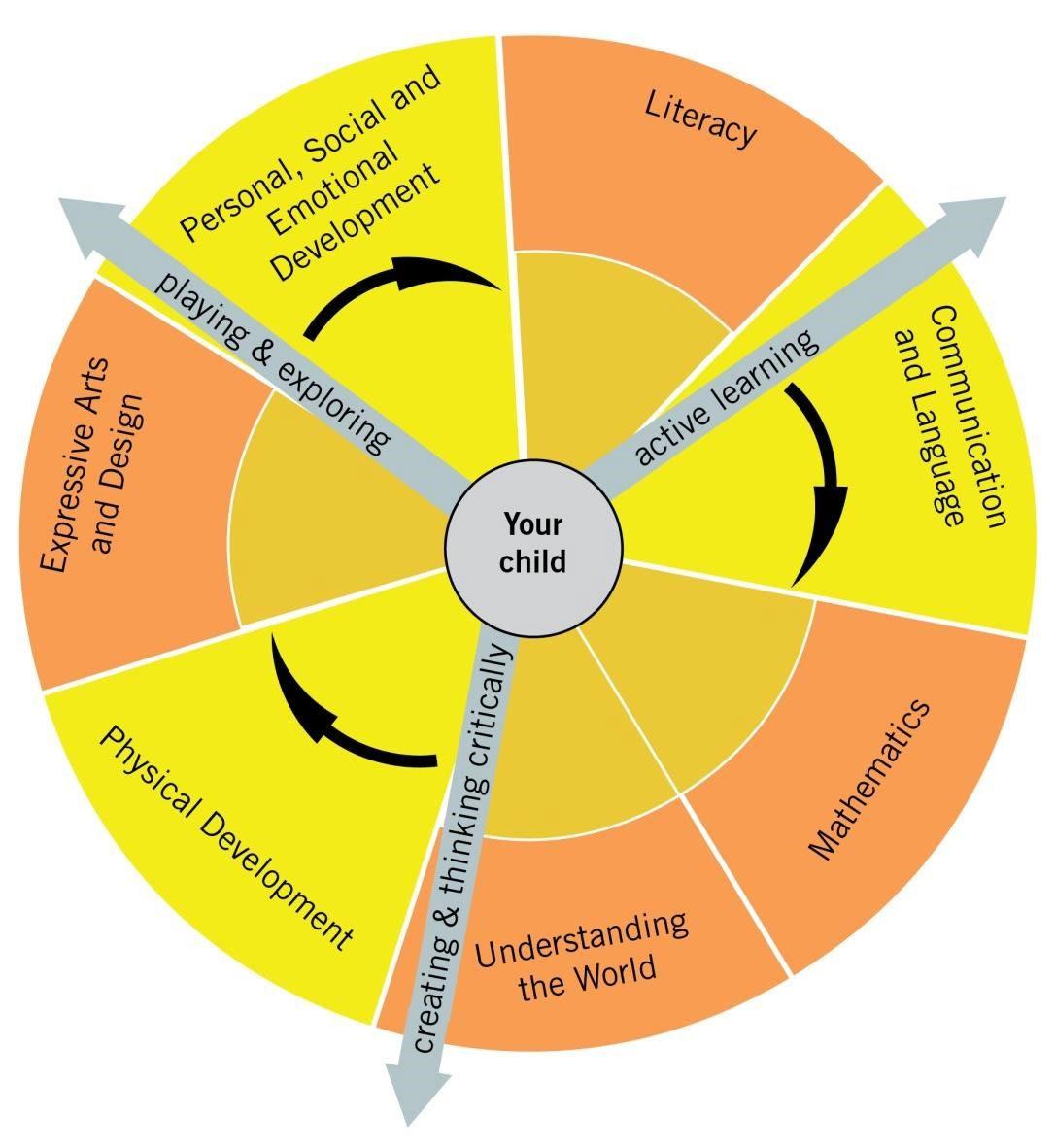
For example, between 2 ¼ and 3 ¾ years: learning about special times or events for family or friends and being able to describe them. Being able to talk about some of the things they have observed such as plants, animals, natural and found objects.
For example, between 2 ½ and 4 years: learning to be confident in talking to other children when playing, and to talk freely about own home and community
For example, between 2 ½ and 4 years: learning how to explore what happens when they mix colours
For example, between 3 ¼ and 5 years: learning to control objects by pushing, patting, throwing, catching or kicking
For example, in reading between 2 ¼ and 4 years: learning how to suggest an ending to a story
For example, between 2 ¼ and 3 ¾ years: learning about special times or events for family or friends and being able to describe them. Being able to talk about some of the things they have observed such as plants, animals, natural and found objects.
For example, between 1 ¾ and 2 ½ years: developing an understanding of simple concepts such as big/little
For example, between 1 ¼ and 2 years: enjoying filling and emptying containers in the bath

22
ADVICE
CHILDREN WITH
HEAD
INJURIES
Minor head injuries and knocks are common and there is usually no lasting damage. However, sometimes a knock can cause damage which may lead to bleeding into the brain. Symptoms can develop after a few hours or even up to a few weeks after a head injury has occurred. Any child that has been unconscious must attend a Hospital Accident and Emergency Department. If your child sustains a head bump/injury whilst at school we will contact you and advise you of what has happened.
DO Expect your child to generally feel miserable and ‘off colour’. Do not force him/her to eat, but make sure that they have enough to drink.
DO Expect your child to be more tired than usual. Allow him/her to sleep if they want to. Just pop in and see them every couple of hours. Do not be confused between normal sleep and unconsciousness – someone who is unconscious cannot be woken up – you need to be satisfied that they are reacting normally to you.
DO Expect your child to have a headache – ‘Calpol’ or Paracetamol may be given for this.
DO Keep your child quiet and resting as much as possible. Keep him/her away from school, discourage active games, watching television and reading until the symptoms subside.
These symptoms should improve steadily, and the child should be back to normal within a few days. Even after a minor head injury, complications may occur, but these are rare. Please be aware that head injuries can have delayed symptoms for up to two weeks after the incident has taken place.
23
TO PARENTS & CARERS CONCERNING
EXCLUSION PROCEDURE FOR ILLNESS/COMMUNICABLE DISEASE
MINIMUM PERIODS OF EXCLUSION
DISEASE/ILLNESS MINIMAL EXCLUSION PERIOD
Temperature Must be off 24 hours
Vomiting Must be off for 48 hours from last incident
Conjunctivitis Must be kept at home until treatment has commenced and discharge from eye has subsided
Diarrhoea Must be off for 48 hours from last incident
Chickenpox Approx. 5 days from appearance of rash until the scabs form.
Measles 4 days from appearance of rash
Mumps Exclude child for 5 days after onset of swelling
Rubella (German Measles) 4 days from appearance of the rash
Scarlet Fever & Streptococcal Infection of the Throat 24 hours after starting appropriate antibiotic treatment
Impetigo
Until the skin is healed or 48 hours after antibiotic treatment
Ringworm of Body Seldom necessary to exclude provided treatment is given
Scabies Need not be excluded once appropriate treatment has been given.
NOTE
Please note in addition to the above, children should be off school for at least 24 hours after being prescribed and first taking a course of antibiotics.
24
ACCIDENT/MEDICAL PROCEDURES
1. Parents will be phoned if a child is ill and needs picking up or if an accident is deemed to be ‘serious’. Parents will be contacted if a child has a head or facial injury.
2. Minor injuries will be treated with the use of an antiseptic wipe or an ice pack where necessary (plasters may be applied if you have given permission on the contact sheet).
3. An Accident Report Form will be put in the child’s folder to advise parents of the details of the accident. Forms completed for a bumped head or serious accident will require the parent’s signature. An information leaflet will be placed in the child’s folder and he/she may display a ‘bumped head’ sticker. A member of staff will always try to tell a parent about an accident verbally.
4. If your child requires medicine whilst at school you will be asked to complete a consent form. A medicine form will be completed when the child is given medicine (signed by two members of staff) and will be placed in the child’s folder. We keep children’s paracetamol in school and can only give this with parents’ permission. Staff are able to give prescription medicines to children. These should be handed into staff and under no circumstances be left in a child’s bag. We will do our best to remember to administer antibiotics but cannot guarantee this. Please check your child’s medicine is in their book bag at the end of the day & inform staff if it is not.
5. Emergency inhalers are kept at school for use by children whose own inhaler cannot be located.
6. All of our staff hold a current Paediatric First Aid Certificate.
7. We have a duty to inform the HPA about non-viable diseases.
8. Please advise us of any infectious diseases that may affect the running of our setting or put others at risk (including pregnant ladies).
9. We are unable to administer medicines. We use our own Calpol (paracetamol) so please do not bring any into school.
10. Please do not leave medicines in book bags without alerting a member of staff.
11. You will be asked to fill in a Care Plan for long term medical needs.
12. We have a defibrillator in school which is located in the main school office at Bronte House.
25
PROCEDURE FOR ABSENCES
1. Unplanned Absence
When a child is, for whatever reason, unexpectedly unable to attend school, then please inform the school – preferably before 9.00 am. This can be done in two main ways:
a) By email – this is preferred as the telephone lines can become very busy. Please email absence@brontehouse.co.uk with the child’s name, form and reason for absence.
b) By telephone – from 8.15 am the phones are always staffed. Before then you may encounter the answering machine. This information will enable the office staff to record the absence correctly in the registers. A check will be done of the registers each day at 10.00am. If there are any unexplained absences then you can expect a telephone call from a member of staff, usually Mrs. Bedford/Mrs Sykes, to enquire of the reason for the absence. They will normally ring the home number first; followed by parents’ mobiles; and lastly parents’ work numbers. If you have a particular number that you would prefer us to contact you on then please let us know. Please note we will not contact you if you have already let us know why the child is not in school.
2. Planned absence
Please address requests for planned absence, well before the event, to the Head either by email or letter. You will receive confirmation of this request and the correct codes will be applied in the registers. School is allowed to authorise up to two weeks absence in one academic year for holidays where there are good reasons why they have to take place in term time. However, this is only applicable to children in Reception. Nursery children can take holidays at any time but should always let us know prior to the holiday.
3. Lateness
School lessons begin at 9.00 am and we expect all children to be at school by this time. The door will be closed and locked after this time and you will have to ring the bell to gain entry. Reception children will be marked ‘late’ in the register. We have a legal duty to ensure our registers are correct.
26
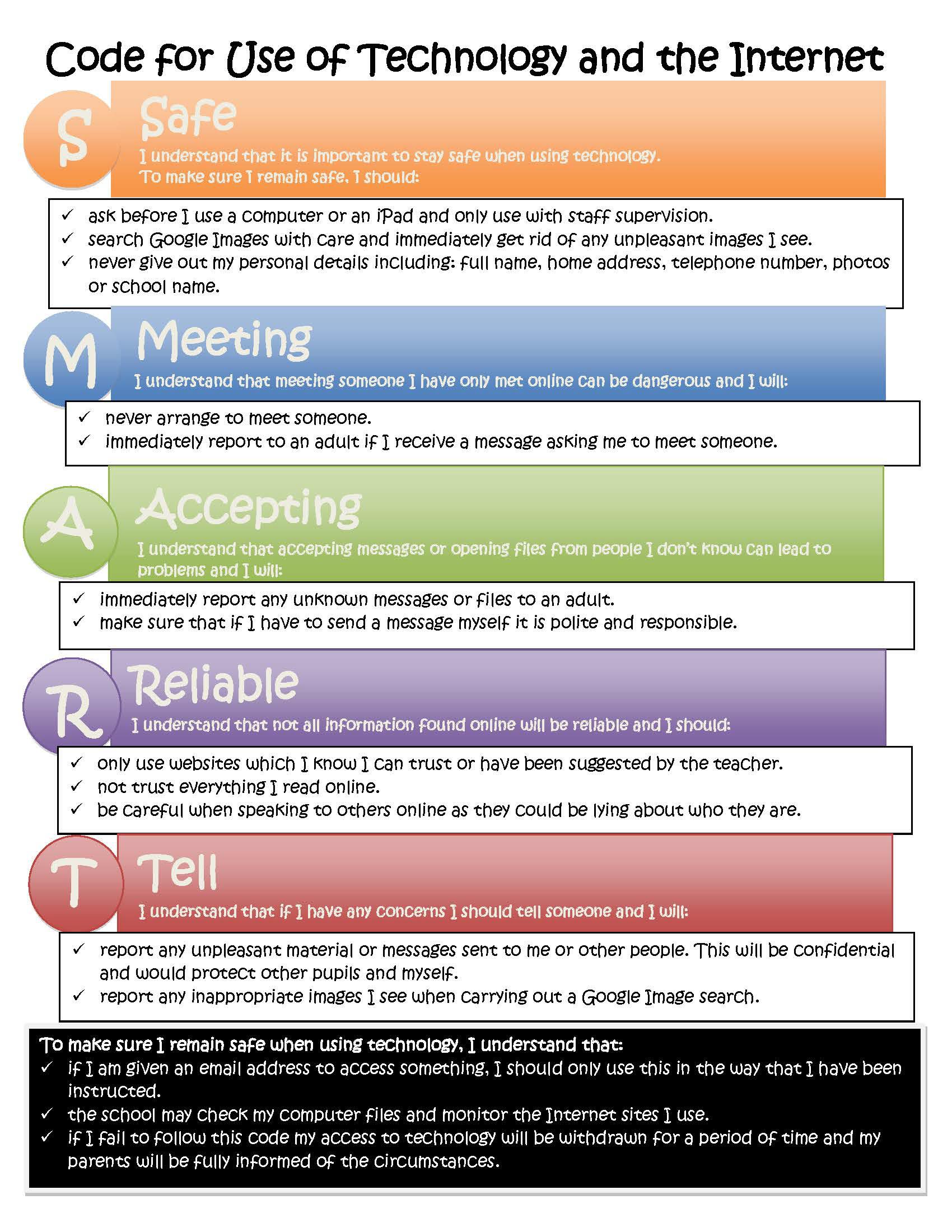
27
Missing Child Policy & Procedures when a child is not collected on time
The welfare of all children at Bronte House School is our paramount responsibility. Every member of staff who works at the school has been trained to appreciate that he/ she has a key role in helping to keep all pupils safe at all times. Our staffing ratios are generous and are designed to ensure that every child is supervised the whole time he or she is in our care at school. This policy also applies to EYFS.
1. Aims
To set out the procedures for staff and parents as to what happens when a child goes missing and what happens when a child is not collected on time.
2. Information for Parents
Information is given to parents on the following:
• Arrangements for handing over children to parents / guardians at the end of the day.
• The qualifications of staff and the arrangements for supervising children whilst they are in school
• The arrangements for registering children in the morning and afternoon
• The physical security measures which prevent unsupervised access to or exit from the building
• The supervision of the playground and the physical barriers that separate it from the rest of the school.
• Enhanced supervisory arrangements for trips and outings involving all children (set out in the Educational Visits Policy).
• All new staff receive a thorough induction as to the importance of supervision of all children.
3. Procedure For Staff If A Child Goes Missing From School
The procedures are designed to ensure that if a child is discovered to be missing they are found and returned to supervision as soon as possible. The following actions would be carried out:
• A register will be taken to ensure that all the other children are present
• Inform the Head
• Ask all adults and children when they can last remember seeing the child
• Supervise all other children in their classroom.
• At the same time arrange for one or more adults to search everywhere checking all spaces, cupboards and washrooms where a small child may hide, inside and out.
• Check doors, gates and CCTV records for signs of exit / entry
If the child is still missing the following steps would be taken:
• Inform the Designated Safeguarding Lead.
• The Head will ring the child’s parents and ask them to come into school as soon as possible and explain what has happened and what steps have been followed.
• The Designated Safeguarding Lead / Head would notify the Police
• The Head would arrange for staff to search the rest of the premises and grounds
• If the child’s home is within walking distance of the school, a member of staff would set out on foot to attempt to catch up with him/ her
• The Designated Safeguarding Lead would inform the Local Children’s Safeguarding Board
• The School would co-operate fully with any Police investigation and any safeguarding investigation by Social Care.
• Inform the Chairman of Governors.
28
4. Procedure for Staff if A Child Goes Missing on an Outing
The procedures are designed to ensure that if a child is discovered to be missing on an outing they are found and returned to supervision as soon as possible. The following actions would be carried out:
• An immediate headcount would be carried out to ensure all other children were present.
• An adult would search the immediate vicinity.
• The remaining children would be taken back to school (or where they were staying if on school residential trip).
• The Head and Designated Safeguarding Lead should be informed via mobile phone.
• The Head will ring the child’s parents and ask them to come into school / to the venue as soon as possible and explain what has happened and what steps have been followed.
• Contact the venue manager to arrange a search
• Contact the Police.
• The Designated Safeguarding Lead would inform the Local Children’s Safeguarding Board.
• The School would co-operate fully with any Police investigation and any safeguarding investigation by Social Care.
• A full record of all activities undertaken until the child was found would be made for the incident report. Procedures may be reviewed if appropriate.
5. Procedure for Staff Once a Child is Found
• Talk to, take care of and comfort the child.
• Speak to the other children to ensure they understand why they should not leave the premises / separate from the group on an outing.
• The Head will speak to the parents to discuss events and give an account of the incident.
• The Head will promise a full investigation involving other agencies where necessary.
• The Head will deal with media enquiries
• The investigation should involve all concerned and provide written statements
• The detailed report should cover the time, place, numbers of staff and children, when the child was last seen, what appeared to have happened, the purpose of the outing, the length of time the child was missing, how they appeared to have gone missing, and lessons for the future.
6. Procedure for Staff When a Child has not signed out in Key Stage 2
• At 5.00 a register is taken in the Dining Hall and the member of SMT on duty makes a list of any children who are not present and who have not signed out.
• The member of SMT then telephones the parents of the child to ascertain whether the child has been collected.
• If a child has not been collected and cannot be located in school, step 3 of this procedure is initiated.
• A record is kept of children who forget to sign out and both the child and parents are reminded of the importance of signing out.
7. Procedure for Staff When a Child is Not Collected on Time
• If a child is not collected by 6.05 p.m. we will call the contact numbers for the Parents/ Guardians/ Carers.
• If there is no reply a member of the Senior Management Team who is on duty will begin to call emergency numbers for this child.
• The child will be supervised and safely looked after by the above member of staff until they are collected.
8. Links with Other Policies
This Policy links particularly with the following policies:
• Child Protection Policy
• Educational Visits Policy
• Risk Assessments
• Staff Recruitment Policy
29




























